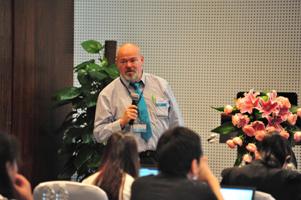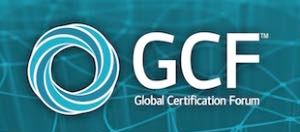Global roll-out of mobile IoT with new dedicated working group supported by GCF

Lars Nielsen, general manager of GCF
The Global Certification Forum GCF, has established a new dedicated working group to focus on the testing and certification requirements for ‘Internet of Things’ (IoT) devices and applications that make use of mobile connectivity.
The new group will support the global roll-out of applications initially based on 3GPP Mobile IoT standards including NB-IoT and LTE Cat-M1. This will be expanded to capture many flavours of IoT standards.
GCF’s new IoT Agreement Group (IAG) will develop and maintain certification criteria and testing procedures that will enable device manufacturers and application developers to realise the full potential of innovative IoT services by connecting over secure, operator-managed licensed spectrum.
Involving disciplines such as sensing, cloud computing, analytics, data cleansing, data processing, systems integration and IP security, while creating new requirements for device management and service provisioning, the IoT ecosystem is very different from the handset market that GCF has been supporting since 1999.
“IoT will revolutionise almost every aspect of our lives and create new opportunities for businesses throughout the global economy,” said Lars Nielsen, general manager of GCF. “GCF can help ensure these new products and services are fully interoperable with mobile IoT networks so that they can realise their full potential.”
“However, we are keen to engage with manufacturers, developers and functionality providers beyond GCF’s traditional participants and encourage them to bring their experience and insight into the IoT Agreement Group.”
Quality of connectivity will be critical to the success of the Internet of Things. To promote interoperability in wireless IoT devices, GCF has already extended its certification scheme to cover the three 3GPP Low Power Wide Area IoT standards: LTE Cat-M1, NB-IoT and EC-GSM-IoT.
Certification reduces the risks and costs associated with interoperability issues that might only emerge after devices have been deployed in the field. The first GCF-certified products incorporating NB-IoT or CAT-M1 are anticipated in the second half of 2017.
IAG will also investigate how IoT device certification needs to integrate with application-layer standards from organisations such as OMA and oneM2M. As well as working closely with these bodies and IoT-related groups within GSMA, the new Agreement Group is seeking to engage with industry organisations dedicated to promoting IoT in specific vertical markets.
Participants in IAG will also explore whether new testing environments need to be developed for IoT devices and applications and how these can be delivered cost effectively. In developing IoT-related certification criteria, when a required test case is not available from a recognised Standards Organisation, IAG is empowered to develop new test specifications.
GCF’s existing module and platform certification schemes are also highly relevant to IoT. The two schemes simplify and cut the cost of obtaining GCF certification for products that incorporate pre-certified wireless modules or platforms by permitting and encouraging the re-use of test results.
A platform can be any hardware or software subsystem that provides defined functionality within the scope of the GCF certification scheme. Examples of platforms include chipsets, core radio components, protocol stacks, downloadable clients and even white label devices that are not marketed directly to end-users but produced to be customised as an operator- or retailer-branded product.
Separately, GCF is currently developing certification processes for GSMA’s Remote SIM Provisioning (RSP).
Comment on this article below or via Twitter @IoTGN
